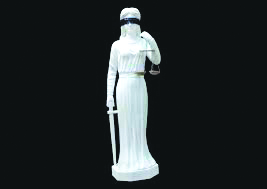The previous bill had stated that the ‘community service’ is a form of punishment for offences like attempting suicide, public servants unlawfully engaging in trade, public intoxication et al.
The new Bharatiya Nagarik Suraksha (Second) Sanhita bill defines the ‘community service’ as “Work which the Court may order a convict to perform as a form of punishment that benefits the community, for which he shall not be entitled to any remuneration.”
Further, the new bill stated that the handcuffs will be used only on criminals charged with select heinous crimes like rape and murder.
In the new bill, the police’s power to use handcuffs has also been extended beyond the time of arrest i.e. when an accused in produced in court.
As per the new bill, a detained individual must be produced before a magistrate or be released in petty cases within 24 hours.
It has been stated that did not accept directions to prevent the commission of a cognisable offence.
However, the bill permitted the preventive detention to continue until the accused is produced before a magistrate.
Highlights Of The New Bharatiya Sakshya (Second) Sanhita Bill, 2023
The new bill permitted the admissibility of electronic evidence, there was no requirement for a certificate under section 63, which pertains to the requirement of a certificate as stated under section 65B of the Indian Evidence Act).
The new Bharatiya Sakshya (Second) Sanhita Bill changed this provision to state that admissibility of electronic records is now being subject to section 63.

















